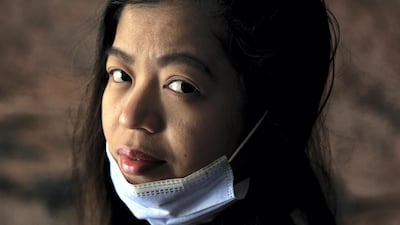Jackielyn Quiasmbao fears she will have the same fate as five members of her family who died of kidney failure, unable to get the treatment they needed.
In 2015, she was told she had Stage 3 kidney failure, but it was only last year that she said she was told she needs dialysis treatment until a transplant can be found.
“Last year, my cousin, who is also 36, died of kidney failure,” says Jackielyn, an office clerk. She knows that without treatment her health will continue to decline.
“I was very worried so I went back to Philippines to confirm the diagnosis, and when they did so I immediately thought to myself, ‘How will I afford it?’”
As is mandatory in the UAE, Jackielyn’s employer provides private medical insurance and she returned to the UAE to start dialysis in October.
“In the Philippines I have no health insurance or any financial support,” she says.
_____________
Read more:
UAE Helping Hands: Single mum struggles to pay for dialysis
UAE Helping Hands: Veteran expat left homeless and in debt after job loss
_____________
Jackielyn, who recently married, underwent four-hour dialysis sessions three times a week until she discovered her medical insurance plan would not cover her for long.
“My insurance covered the first three sessions and then stopped paying for it,” she says.
One session of dialysis costs Dh653 and Jackielyn earns only Dh3,000 a month.
“Dialysis will cost more than Dh7,000, which is more than double my salary,” she says.
So far she has managed to pay for the sessions by taking out a loan from her company and from the support of her husband, who earns about Dh4,000.
“I am registered at Sheikh Khalifa Medical City and on the waiting list for a kidney transplant,” Jackielyn says.
Her brother travelled from the Philippines to donate one of his kidneys, but was found to be suffering from hypertension, which does not make him eligible.
“My sister is now doing the tests and hopefully she will qualify,” Jackielyn says.
But until then, she must continue her dialysis sessions or face a deterioration in her health.
“I can’t afford to continue paying for dialysis. I’ve taken all the loans that I can but it is too expensive for us,” Jackielyn says.
Hisham Al Zahrani, manager of zakat and social services at Dar Al Ber, said: “Without insurance, dialysis is too expensive for most people to cover.
“We are asking the community to please help pay for the sessions until Mrs Quiasmbao has her transplant, which will be done as soon as her sister has the necessary tests done.”

